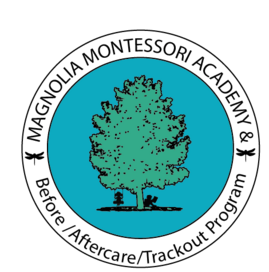Montessori Vs. Conventional School
Frequently asked questions (FAQS)
The name Montessori usually refers to the educational method developed by Dr. Maria Montessori, an Italian physician. Dr. Montessori observed that all children were driven by inherent tendencies which expressed themselves particularly intensely at certain ages — for example: exploration, communication, movement, and a desire for self-perfection. She developed a plan of education that would respect and follow the child’s inner guide to development and work in harmony with the child’s own natural tendencies towards independence and learning.
Basic subjects such as language, math, history, geography, biology, chemistry, geometry, music, and art are introduced in Montessori classes first in the 3-6 programs. Elementary students, by nature, want more answers to life’s questions. The “how, where, what and when” questions are expanded into their environment and beyond. They want to classify, group, and get control of their world. The elementary curriculum incorporates that explosion into knowledge from questions with materials that name, classify, and redefine the natural world in which the child has joined. .
No. Although there are Montessori schools all over the world, all Montessori schools are not alike. Dr. Montessori’s vision for children spread so quickly that soon the name “Montessori” became part of the public domain and could not be given a copyright. Differences in the quality of teacher-training, school standards, and adherence to the Montessori philosophy all affect the quality of a Montessori school. Schools may be organized and governed very differently, and this too can affect what you see in the program itselfType your paragraph here.
The 3 – 6 year old classroom contains what we consider 5 different areas of learning (although they are well integrated in the experience of the children)— practical life, sensorial development, language, mathematics, and cultural studies (geography, art, music, etc.). The children receive individual and small group lessons in each of these areas and are free to work with these activities at any time. Sprinkled throughout the day are little gatherings where the children might sing songs, read a story, or celebrate a birthday or seasonal holiday. The focus is on helping the children to choose activities that are of interest to them, building a feeling of community among the children, and supporting their natural curiosity and love of learning.
If you want children to become responsible young adults they must have opportunities to practice at a young age. A mixed age group allows children of different ages and abilities to help each other and thus learn responsibility. In a mixed age class it is not always the teacher who solves problems. In fact more often it is not. Instead it is another child. This is not possible in a class with children all of the same age and abilities. Since no two children grow and mature in exactly the same way the materials available to the children are varied and numerous. The proper activity for the right moment is there to be introduced to the child when he is ready or chosen by him as his interest dictate. Thus, no child is held back if his skills indicate a need to move on, nor is a child pressured to keep pace with skills he is not yet ready to master. The sensitive periods of each child can be capitalized upon in a multi-age classroom
Another observation of Dr. Montessori’s, which has been reinforced by modern research, is the importance of the sensitive periods for early learning. These are periods of intense fascinations for learning a particular characteristic or skill, such as going up and down steps, putting things in order, counting, or reading. It is easier for the child to learn a particular skill during the corresponding sensitive period than at any other time in her life. The Montessori classroom takes advantage of this fact by allowing the child freedom to select activities which correspond to their own periods of interest.
Below is a list of many familiar people who were Montessori educated:
Larry Page and Sergey Brin, Founders of Google.com, credit their Montessori education for much of their success
Jeff Bezos, financial analyst, founder, AMAZON.COM
Gabriel Garcia Marquez, Nobel Prize winner for Literature
Katherine Graham (deceased), owner/editor of the Washington Post
Jacqueline Bouvier Kennedy Onassis (deceased), editor, former first lady (John F. Kennedy)
Anne Frank, famous diarist from World War II
Prince William and Prince Harry, English royal family
T. Berry Brazelton, noted pediatrician and author
Julia Child, famous chef, star of many TV cooking shows and author of numerous cookbooks
Melissa and Sarah Gilbert, actors
David Blaine, a magician as well as endurance artist and advocate of “street magic”
Famous people who chose Montessori schools for their own children:
Stephen J. Cannell, TV writer-producer-director (The Rockford Files and many others)
Cher Bono, singer-actress
John Bradshaw, psychologist and author
Yul Brynner (dec.), actor
Marcy Carcy, TV producer
Bill & Hillary Clinton, former president/senator, NY
Michael Douglas, actor
Shari Lewis (dec.), puppeteer
Yo Yo Ma, cellist
Others with a Montessori Connection:
Alexander Graham Bell (dec.), noted inventor, and his wife Mabel founded the Montessori Education Assocation in 1913. They also provided financial support directly to Dr. Montessori and helped establish the first Montessori class in Canada and one of the first in the United States
Mister Rogers, children’s TV personality, strong supporter of Montessori education
Thomas Edison, noted scientist and inventor, helped found a Montessori school
President Wilson’s daughter trained as a Montessori teacher. There was a Montessori classroom in the basement of the White House during Wilson’s presidency.
Erik Erikson (dec.), noted anthropologist/author, had a Montessori teaching certificate
Jean Piaget (dec.), noted Swiss psychologist, made his first observations of children in a Montessori school. He was also head of the Swiss Montessori Society for many years.
